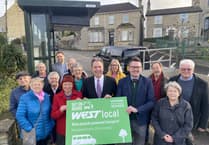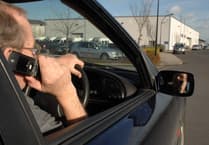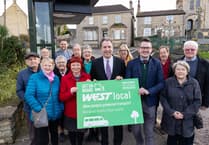Controversial parking charges planned for Midsomer Norton and Radstock have been scrapped to protect their “relatively weak” economies.
The new fees, which were only expected to raise £20,000 this year, were proposed as Bath and North East Somerset Council faces a “perfect storm” of reduced income and higher costs, but drew cross-party condemnation and was criticised by hundreds of residents and business owners.
Councillor Richard Samuel, the authority’s Liberal Democrat deputy leader, said the charges would not be introduced because of the potentially negative impact on high street businesses. The issue became politically charged. Independent Councillor, Shaun Hughes, first brought the subject to light in a scrutiny panel meeting – noticing the proposal in a budget appendix. The issue gathered momentum, with a petition created by Labour Councillor, Grant Johnson, who said he had never witnessed a community so vigorously against a Council proposal. The petition raised more than 1,100 signatures. The Conservatives asked the Council to reconsider prior to its budget meeting last Thursday evening. Even the Lib Dems joined the campaign against the charges put forward by their own party leaders – issuing local media with a press release and photograph of current Councillors at South Road car park and ‘a local Lib Dem’ campaigner – perhaps a potential new candidate for next year’s Local Elections?
Labour’s Grant Johnson said: “The strength of feeling as I spoke openly with traders and residents was one of anger and disbelief. Here was an administration prepared to do so much damage to the economic prosperity of a community for such little payback,” he said.
Mr Johnson said the Lib Dems’ photoshoot “stank of damage limitation”, adding: “I would carefully consider the impact your proposals have on the livelihoods of local businesses and local residents before you try to play politics with them.”
Conservative Councillor Michael Evans said parking charges were proposed in Midsomer Norton a decade ago and now the high street is even more fragile. He added residents would be disappointed if the fees were introduced when the Council had managed to find cash to refurbish its own offices in Keynsham and provide a car park just for its own staff.
Cllr Hughes told The Journal he was “delighted” the budget plan for parking charges in the two towns had been scrapped. He said: “I would like to say a big thank you to all the residents who objected through the consultation, protested and signed petitions. This is truly a great result for all their efforts.
“The only sad part of this issue is the behaviour of the Lib Dem Councillors who could have simply shown some respect for Midsomer Norton residents and withdrawn the proposal as a balanced response to public objection.
“Sadly they choose to wheel out their local candidates and Cabinet member at the last moment in a cynical attempt to take credit for their own mistake.
Where were these people for the last month while the rest of us were fighting to get this removed and high street businesses and workers were worrying about their jobs?
“This type of cheap party political game is negative and toxic and demonstrates the huge disconnect between The Lib Dems and Midsomer Norton.
“It’s also important to note that the Council’s plan for building houses on South Road car park is going before the planning inspector later this year, so we still have work to do.”
After the strength of feeling shown, Mr Samuel, the cabinet member for resources, told the cabinet meeting on February 10th: “We have listened carefully to the arguments advanced against the proposed introduction of car parking charges into Midsomer Norton and Radstock.
“Due to the relative weakness of the local economies in those towns I have concluded that the charges should not be introduced because of the potentially negative impact that might have on high street businesses.”
The Council’s parking income has recovered better than the struggling heritage services and commercial estate, which Cllr Manda Rigby said it has become dependent on.
Mr Samuel said: “Less income means more pressure on our budget because we cannot rely on the income we normally use to fund our full range of services. We expect to receive £13 million less income in the coming financial year. When this is added to the significant inflationary pressures in the wider economy and the post-lockdown service pressures, we have a perfect storm.”




